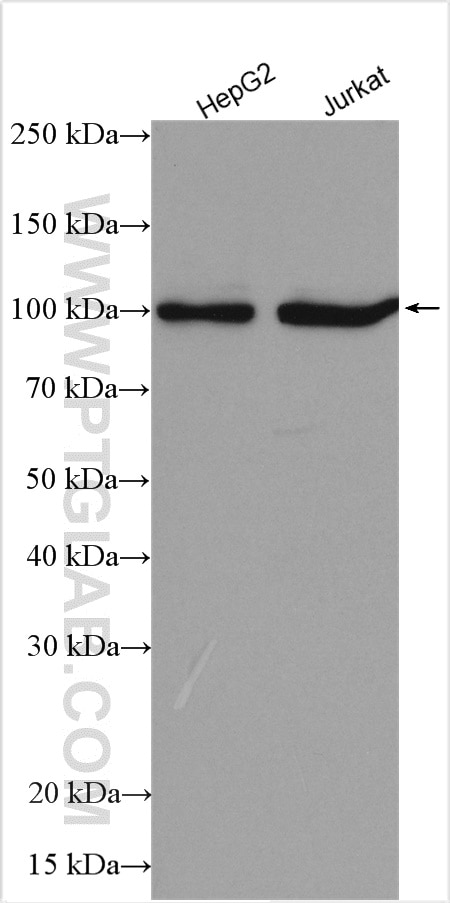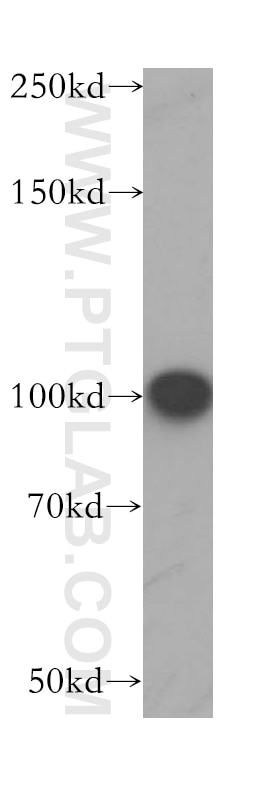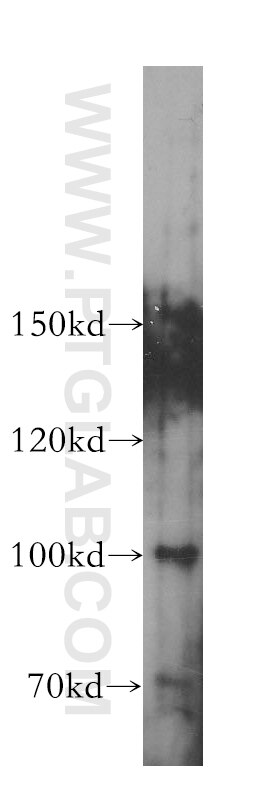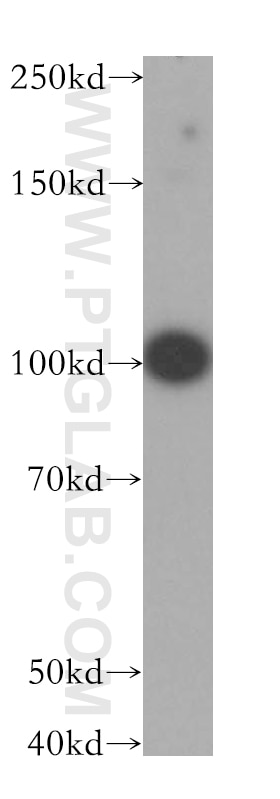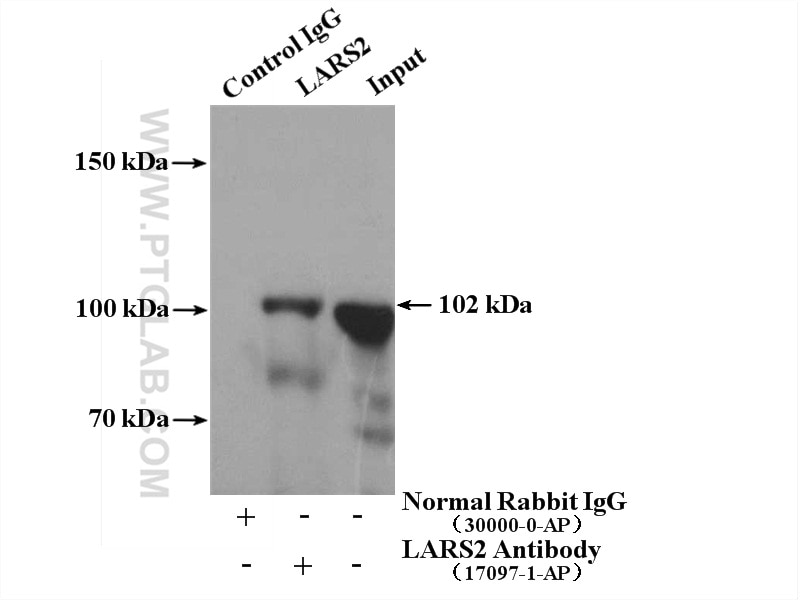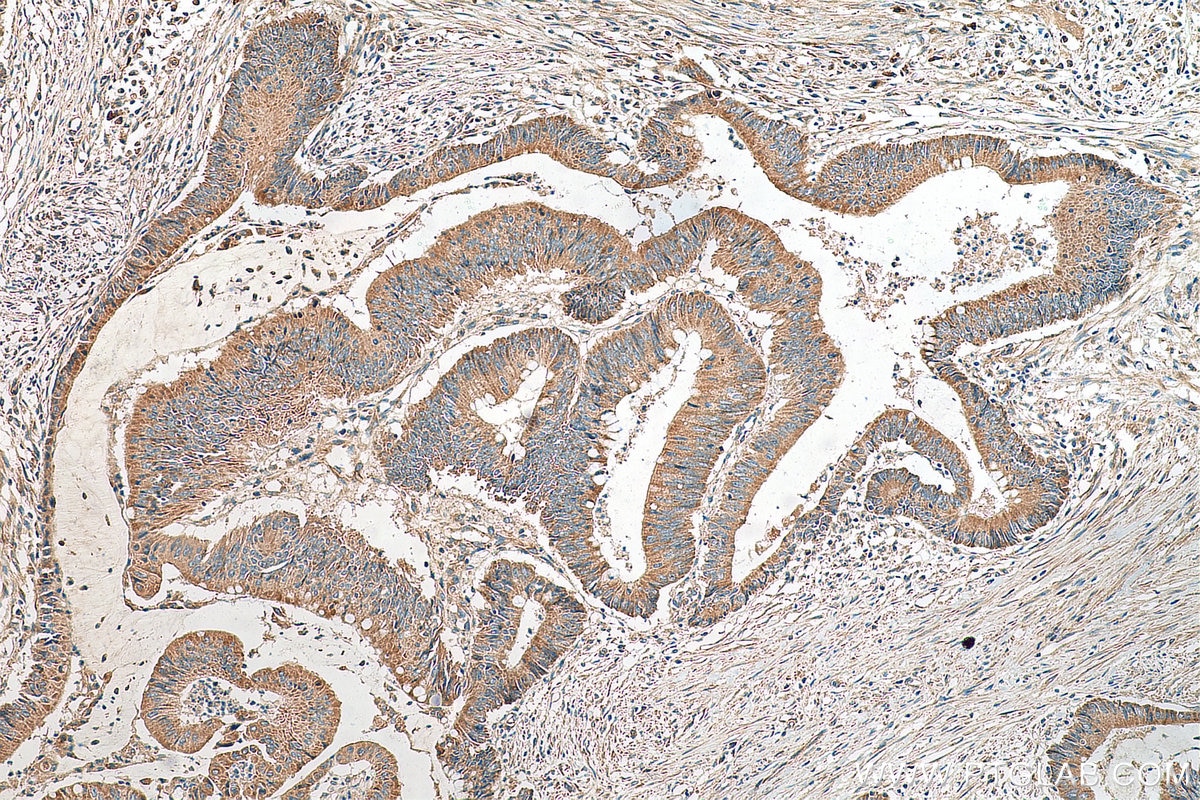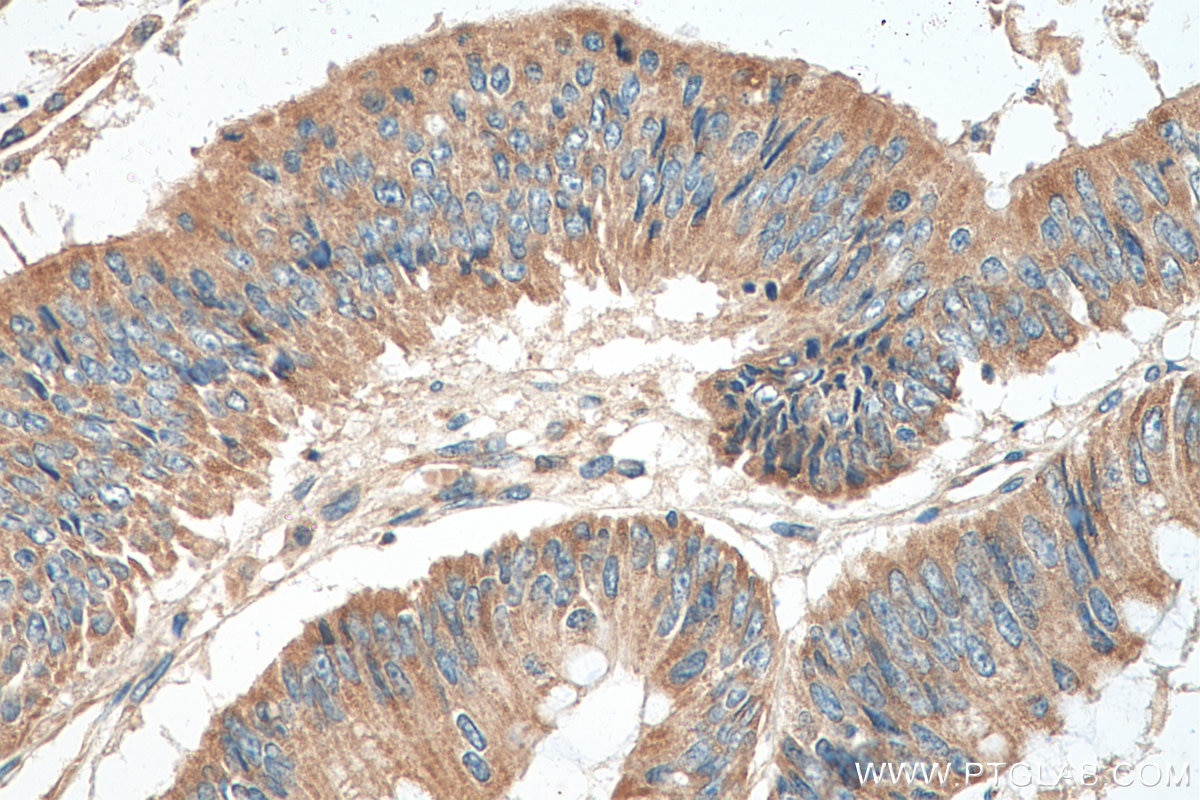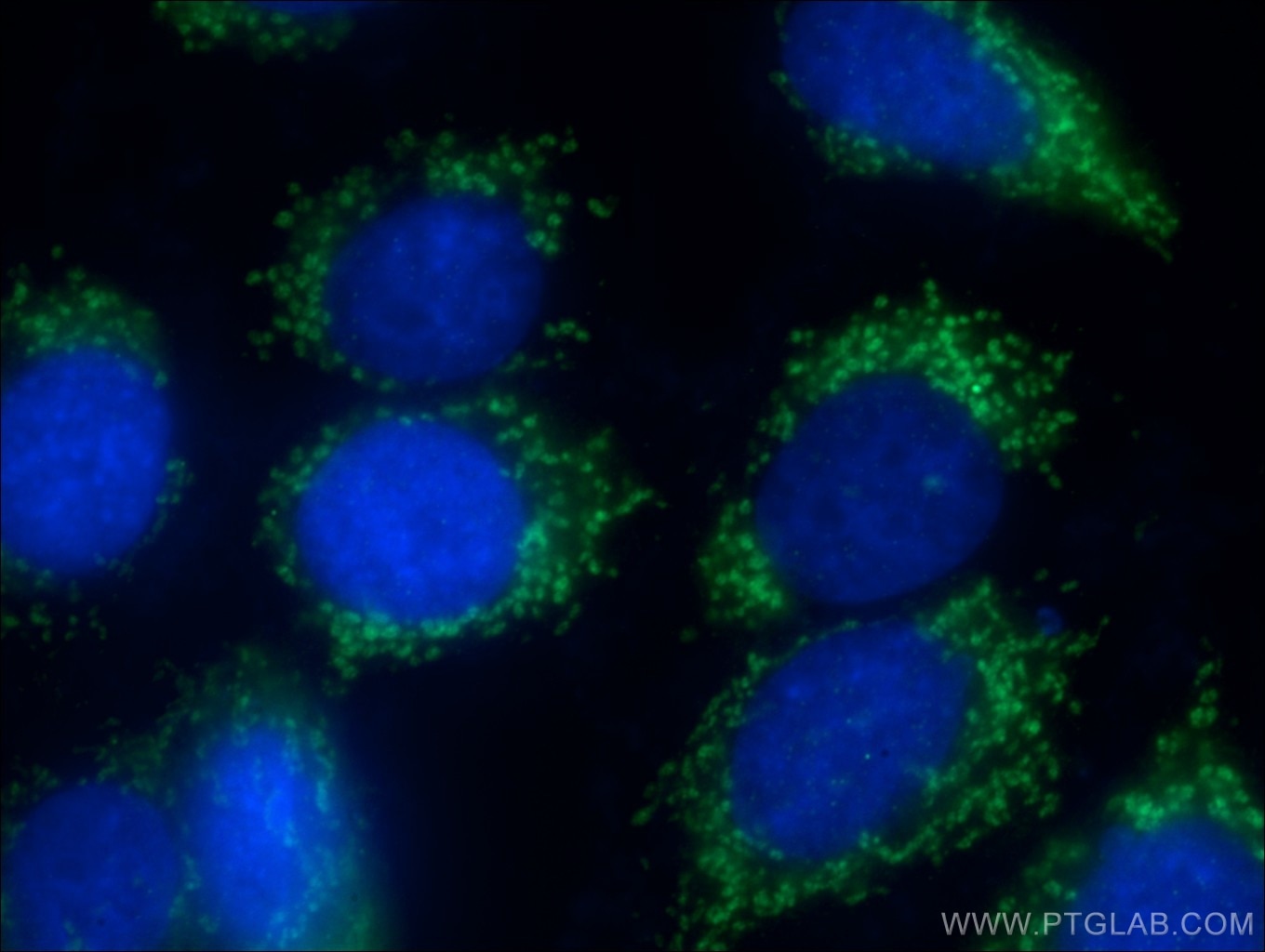Tested Applications
| Positive WB detected in | HepG2 cells, Jurkat cells, MCF-7 cells |
| Positive IP detected in | Jurkat cells |
| Positive IHC detected in | human colon cancer tissue Note: suggested antigen retrieval with TE buffer pH 9.0; (*) Alternatively, antigen retrieval may be performed with citrate buffer pH 6.0 |
| Positive IF/ICC detected in | HepG2 cells |
Recommended dilution
| Application | Dilution |
|---|---|
| Western Blot (WB) | WB : 1:500-1:2000 |
| Immunoprecipitation (IP) | IP : 0.5-4.0 ug for 1.0-3.0 mg of total protein lysate |
| Immunohistochemistry (IHC) | IHC : 1:50-1:500 |
| Immunofluorescence (IF)/ICC | IF/ICC : 1:20-1:200 |
| It is recommended that this reagent should be titrated in each testing system to obtain optimal results. | |
| Sample-dependent, Check data in validation data gallery. | |
Published Applications
| KD/KO | See 1 publications below |
| WB | See 9 publications below |
| IHC | See 2 publications below |
| IF | See 5 publications below |
Product Information
17097-1-AP targets LARS2 in WB, IHC, IF/ICC, IP, ELISA applications and shows reactivity with human samples.
| Tested Reactivity | human |
| Cited Reactivity | human, mouse, zebrafish |
| Host / Isotype | Rabbit / IgG |
| Class | Polyclonal |
| Type | Antibody |
| Immunogen |
CatNo: Ag10576 Product name: Recombinant human LARS2 protein Source: e coli.-derived, PGEX-4T Tag: GST Domain: 554-903 aa of BC025989 Sequence: VDLYIGGKEHAVMHLFYARFFSHFCHDQKMVKHREPFHKLLAQGLIKGQTFRLPSGQYLQREEVDLTGSVPVHAKTKEKLEVTWEKMSKSKHNGVDPEEVVEQYGIDTIRLYILFAAPPEKDILWDVKTDALPGVLRWQQRLWTLTTRFIEARASGKSPQPQLLSNKEKAEARKLWEYKNSVISQVTTHFTEDFSLNSAISQLMGLSNALSQASQSVILHSPEFEDALCALMVMAAPLAPHVTSEIWAGLALVPRKLCAHYTWDASVLLQAWPAVDPEFLQQPEVVQMAVLINNKACGKIPVPQQVARDQDKVHEFVLQSELGVRLLQGRSIKKSFLSPRTALINFLVQD Predict reactive species |
| Full Name | leucyl-tRNA synthetase 2, mitochondrial |
| Calculated Molecular Weight | 903 aa, 102 kDa |
| Observed Molecular Weight | 102 kDa |
| GenBank Accession Number | BC025989 |
| Gene Symbol | LARS2 |
| Gene ID (NCBI) | 23395 |
| RRID | AB_2132807 |
| Conjugate | Unconjugated |
| Form | Liquid |
| Purification Method | Antigen affinity purification |
| UNIPROT ID | Q15031 |
| Storage Buffer | PBS with 0.02% sodium azide and 50% glycerol, pH 7.3. |
| Storage Conditions | Store at -20°C. Stable for one year after shipment. Aliquoting is unnecessary for -20oC storage. 20ul sizes contain 0.1% BSA. |
Background Information
LARS2 (Probable leucine--tRNA ligase, mitochondrial) is also named as mitochondrial LEURS. The deduced 903-amino acid protein has an N-terminal mitochondrial targeting signal that is cleaved after residue 39. LARS2 has characteristics of a class I aminoacyl-tRNA synthetase, including a classical Rossmann fold. It belongs to the class-I aminoacyl-tRNA synthetase family.
Protocols
| Product Specific Protocols | |
|---|---|
| IF protocol for LARS2 antibody 17097-1-AP | Download protocol |
| IHC protocol for LARS2 antibody 17097-1-AP | Download protocol |
| IP protocol for LARS2 antibody 17097-1-AP | Download protocol |
| WB protocol for LARS2 antibody 17097-1-AP | Download protocol |
| Standard Protocols | |
|---|---|
| Click here to view our Standard Protocols |
Publications
| Species | Application | Title |
|---|---|---|
Circulation Single-Cell RNA Sequencing Unveils Unique Transcriptomic Signatures of Organ-Specific Endothelial Cells. | ||
Mol Cell Mitochondrial Threonyl-tRNA Synthetase TARS2 Is Required for Threonine-Sensitive mTORC1 Activation. | ||
Bone Res Mechanism of Piezo1 regulating chondrocyte mitochondrial function and promoting fracture healing through β-catenin/LARS2 signaling pathway | ||
Nucleic Acids Res Deletion of Mtu1 (Trmu) in zebrafish revealed the essential role of tRNA modification in mitochondrial biogenesis and hearing function. | ||
EMBO Mol Med The isolated carboxy-terminal domain of human mitochondrial leucyl-tRNA synthetase rescues the pathological phenotype of mitochondrial tRNA mutations in human cells. | ||
Oxid Med Cell Longev LARS2 Regulates Apoptosis via ROS-Mediated Mitochondrial Dysfunction and Endoplasmic Reticulum Stress in Ovarian Granulosa Cells.
|

